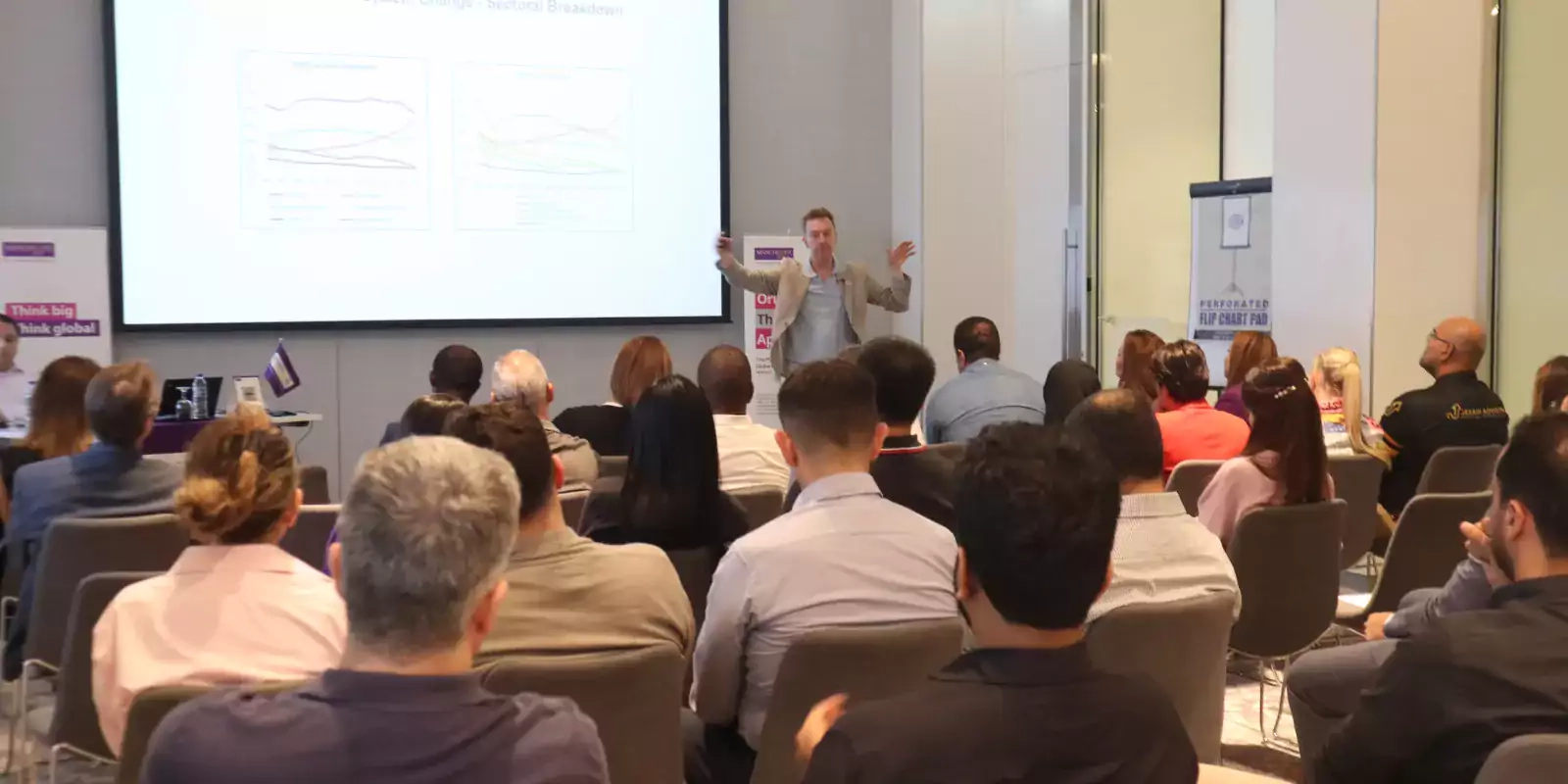
Professor Ken McPhail, the new Head of Alliance Manchester Business School at The University of Manchester, has led a masterclass on Innovation, Institutional Investors & Low-Carbon Transitions, during his first visit to Dubai and the UAE. The session attracted a large in-room audience, as well as others joining via video conferencing.
Introducing the session, Professor McPhail said: “We are educating the next generation of leaders who can navigate through the challenges of a hugely dynamic and complex business environment. I’m a huge believer in the power of education and it’s been encouraging to see the impact that our Centre has been able to achieve through the amazing alumni who have gone through our programmes.”
In introducing a topic “very close to my heart” and becoming increasingly relevant to the region as we host COP28, he noted that the challenge of the transition to net zero is something which is now shifting from being a marginal regulatory issue to one at the centre of most aspects of business and the transformations that we will go through in the coming few years.
Professor McPhail began his presentation by posing a series of questions to the audience:
If there is a consensus on the need to transition the economy, how would you do it? What actions would you take to achieve that? We know from the science that the goal is around 2 degrees but how do we achieve it and how would you measure progress to this goal?
According to IPCC, achieving climate mitigation targets requires large scale financial investments to drive low-carbon transitions in electricity, industry, buildings, and transport sectors. Estimates of additional annual investments needed range between 1.38-3.25 trillion USD/year in the 2016-2035 period (IPCC, 2018) to limit change to 1.50C.
The mobilization of financial capital is therefore a major policy and research issue for addressing climate change. The United Nations, International Monetary Fund, Organisation for Economic Co-Operation and Development, European Environment Agency, and the European Commission are exploring the potential role of institutional investors in financing low-carbon transitions.
Because institutional investors manage an estimated $85.7 trillion in assets and their investments tend to be risk averse and long-term, they are viewed as a source of ‘patient capital’ that is required for low-carbon transitions. While this funding could come through bonds or equity, direct investment in renewable energy projects has also been advocated.
Yet, there is concern that finance theory and the practices of institutional investors mean that capital markets act as barriers to low-carbon transitions because they lock investment into existing companies and production-consumption systems and thus stop capital flowing towards new carbon-neutral businesses at the required speed. The European Commission’s High-Level Expert Group on Sustainable Finance concludes that a complete transformation is required in the “entire financial system, its culture and incentives” (ECHLEG, 2018, p.2) to enable new environmental technologies to break through and transform established production-consumption systems.
The masterclass explored how institutional investors are reorienting their portfolios in ways that could lead to low-carbon transitions; the factors facilitating or hindering this transition and the opportunities for financial sector disruptors.
Concluding the presentation, Professor McPhail said: “The thing that gets me excited and interested is that we are at this place where the old ways of business thinking are not good enough to get us through this transition.”
The key word here is ‘opportunity’, he said. “…Transition translates into business opportunities for companies, start-ups and the opportunity to do something good and hugely financially rewarding – aligning purpose with profitability. Innovation and the power of leadership is a key factor and key differentiator – the ability to innovate and disrupt established models. This is why we focus on leadership.”
About Kenneth McPhail
Ken McPhail is Head of Alliance Manchester Business School at The University of Manchester. He was previously Deputy Head and Director of Research. Prior to this, Ken was Vice Dean for Social Responsibility within the Faculty of Humanities at the University of Manchester. As Vice Dean, Ken oversaw the strategic development and implementation of the Universities distinctive social responsibility agenda across 5 schools, 36 disciplines, 18,000 students and 1,800 academic and support staff. In addition, Ken also sat on the University’s Social Responsibility Governance Group, chaired by the Vice Chancellor and Principle.
